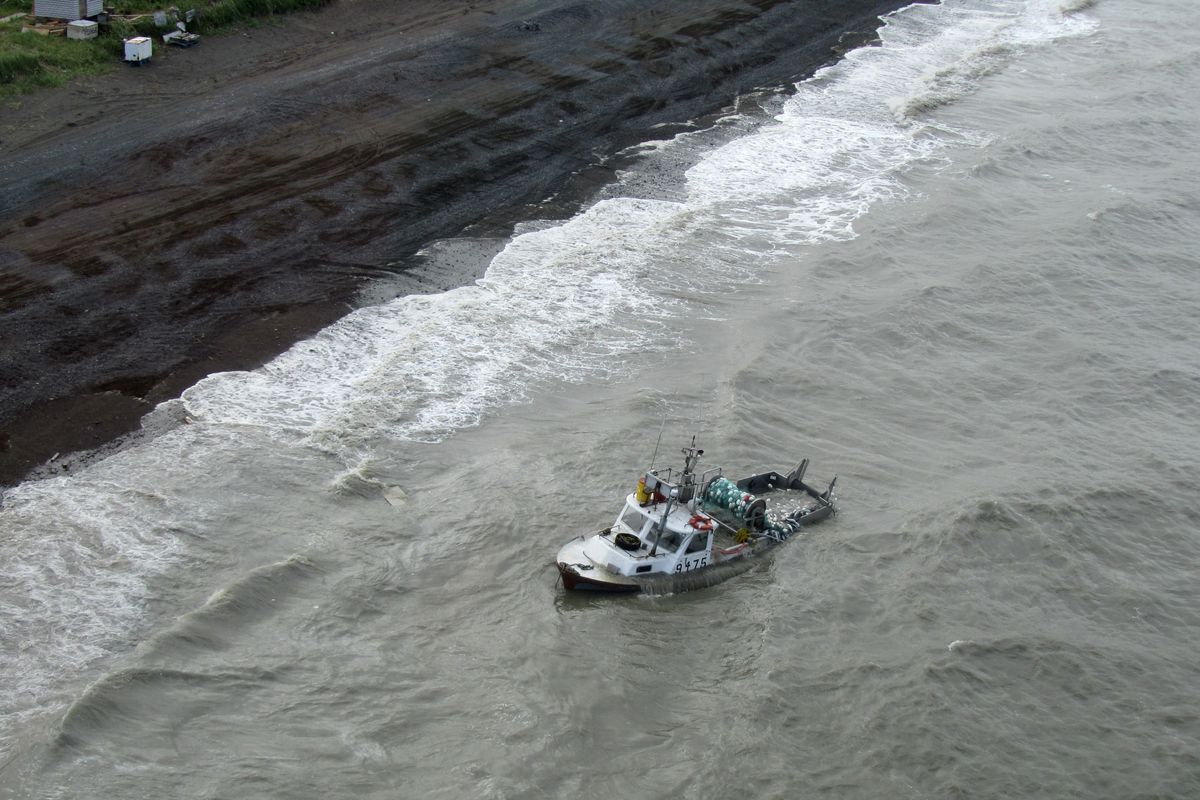It’s time to take a time out. Maybe not a long one, just a few minutes to think about what we’re doing. Alaska’s Bristol Bay ran strong and long. Anecdotally, six small vessels swamped in the bay as a result of weather and overloading, fortunately with no loss of life. Alaska commercial fishing has already seen nine fatalities in the first half of 2017. Alaska has not seen this many fatalities within the first half of the year in 13 years. Since July 1, we have had two more fatalities, this time in Prince William Sound and in Ugashik Bay.
In Alaska, commercial fishing fatalities have been averaging about five per year for the past five years. Alaska commercial fishermen should be rightfully proud of the more than 76 percent decrease in deaths since the 1980s, but in 2017 we are experiencing a significant increase in fatalities. Now is a good time to take a few minutes and think about how we can further reduce risks to our vessels and crews.
Have respect for icing and anything that raises your vessel’s center of gravity. You can take actions that will improve or at least preserve vessel stability. Keep your vessel the watertight envelope it was designed to be. Keep your watertight bulkheads sealed. Install bilge alarms and high-capacity pumps. Flooding and loss of stability are the cause of about 50 percent of casualties.
Keep your crew afloat, as well as your vessel. In a 15-year study by the National Institute for Occupational Safety and Health, out of 210 fishermen who fell overboard and died, not one was wearing a PFD. There is no reason for crew members on deck to not wear one of the many types of comfortable and snag-resistant PFDs that are now on the market.
Don’t go out on deck alone, especially at night, without telling someone. Of the fatal man-overboard incidents, 53 percent are unwitnessed. Buy a man-overboard alarm. Some have engine shutoff capacity. Rig a MOB rescue device with a mechanical advantage, a boarding ladder, and a way to get yourself back on the vessel if you fall overboard, especially if you fish alone. Between 25 and 33 percent of fatalities are man-overboard events.
Pay attention to the weather forecast. Storm forecast? Don’t go! It’s not worth it. Nature doesn’t care a whit for you. Find the highest risk item on your deferred maintenance checklist. Now fix it. Maintain your survival gear properly, assign emergency duties, practice your drills monthly, get training, plan ahead. Operate a small open fishing boat? Remember, a rapid swamping just takes one wave — an instant. Use extra caution.
Get sufficient sleep. During Alaska’s long summer days, fatigue is endemic. Studies show that the quality of your decisions degrades with fatigue. When you are exhausted, you do dumb stuff. The only remedy for fatigue is sleep. Remember, your families and friends depend on you. Your life and the lives of your crew are at stake.
When we ask the Coast Guard or others to rescue us, it puts them at risk as well. They also value their lives. A few minutes now to take preventive measures can save family members and friends from attending another fishermen’s memorial service. They are all depending on you to come back alive.
Email Dock Talk submissions to [email protected], or fax them to (207) 842-5603. Submissions should be approximately 600 words and include daytime phone number and Social Security number. Authors published in Dock Talk receive $150.







